FAQ: 2020 Farm Requirements
A detailed FAQ about the Rainforest Alliance 2020 Sustainable Agriculture Standard Farm Requirements.
Home / Business / Certification / Page 51
Certification has had a huge impact in bringing sustainability to the forefront of business thinking, but it must continue to evolve to provide more value to farmers and companies and ensure that people and nature can thrive in harmony.
That's why the Rainforest Alliance launched its new Certification Program, which entered into force in July 2021. The Sustainable Agriculture Standard, along with its assurance and technology systems, are data-powered, and based on the principles of continuous improvement, risk-based assurance, contextualization, and shared responsibility. This is how we can deliver more value to the two million farmers and thousands of businesses that use Rainforest Alliance certification to drive more sustainable agricultural production and responsible supply chains.
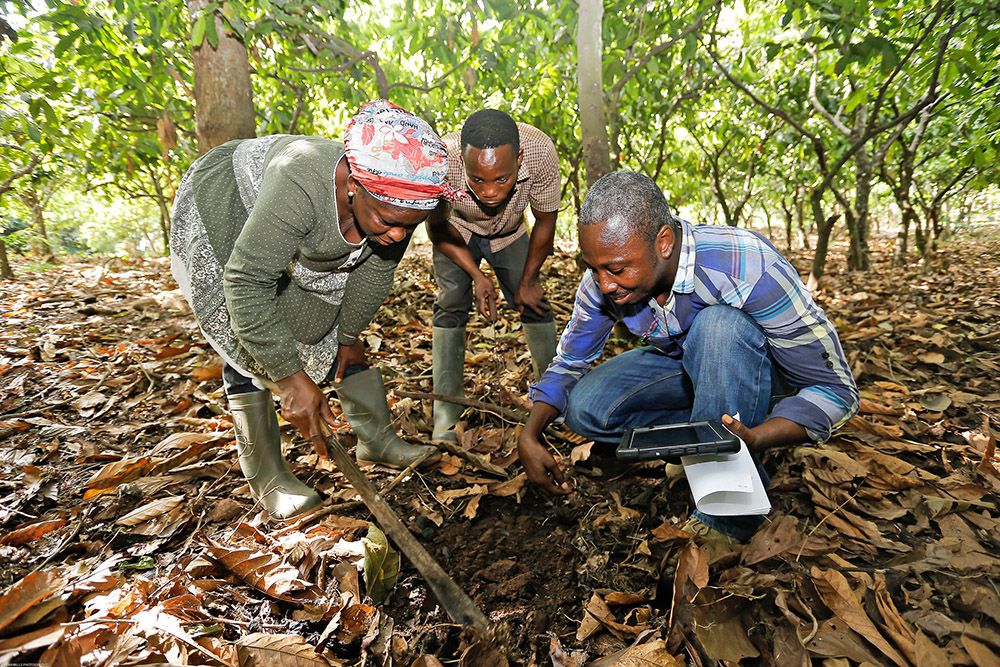
The certification program is part of the Rainforest Alliance’s strategy to drive sustainability at scale in the sectors in which we operate through interconnected interventions supporting certification, tailored supply chain services, landscapes and communities, and advocacy.
Key priorities of our cocoa strategy are assurance, shared responsibility, supply chain transparency, and profitability and resilience.
How we have tailored the implementation and verification of standards requirements on child labor and forced labor to the risk exposure of each farm.
Our shared responsibility approach aims to distribute benefits and costs of certification more evenly between farmers and companies.
Begin your journey of certification with the Rainforest Alliance.
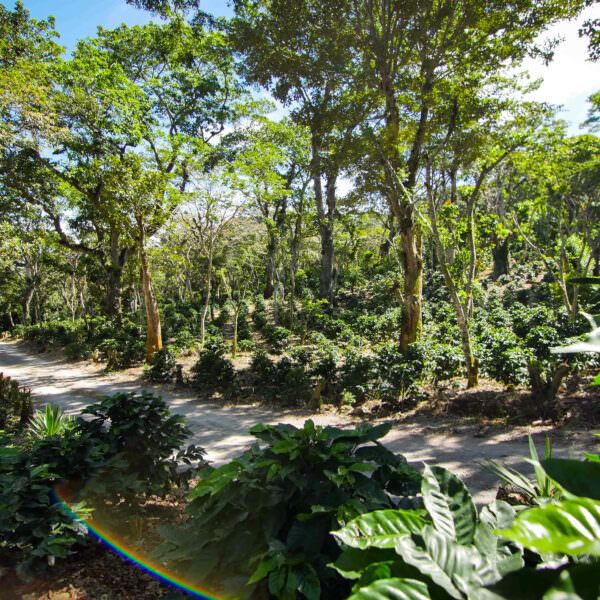
A detailed FAQ about the Rainforest Alliance 2020 Sustainable Agriculture Standard Farm Requirements.
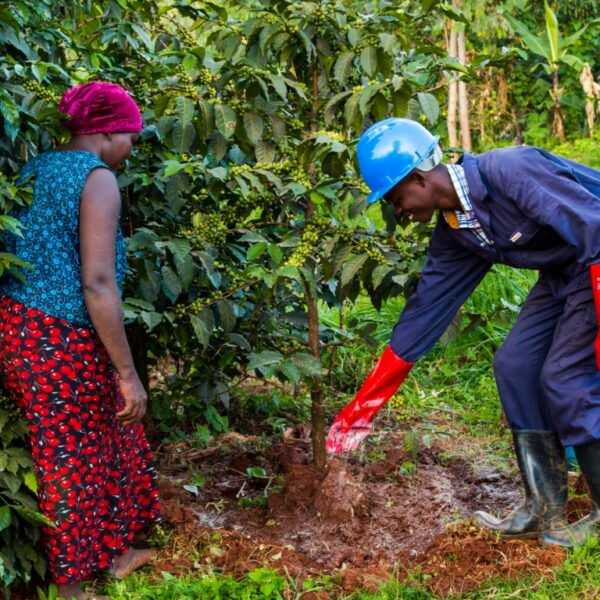
Find out what Ugandan coffee exporter, Kyagalanyi Coffee, had to say about the new program—from the improvements to the challenges.
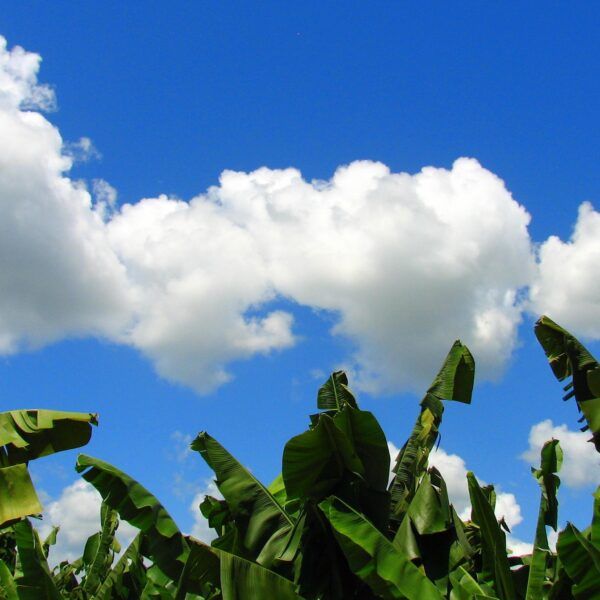
After teaming up for an early implementation pilot of our strengthened certification program, both Finca Esmeralda and the Rainforest Alliance took away learnings that will contribute to a more sustainable banana sector.
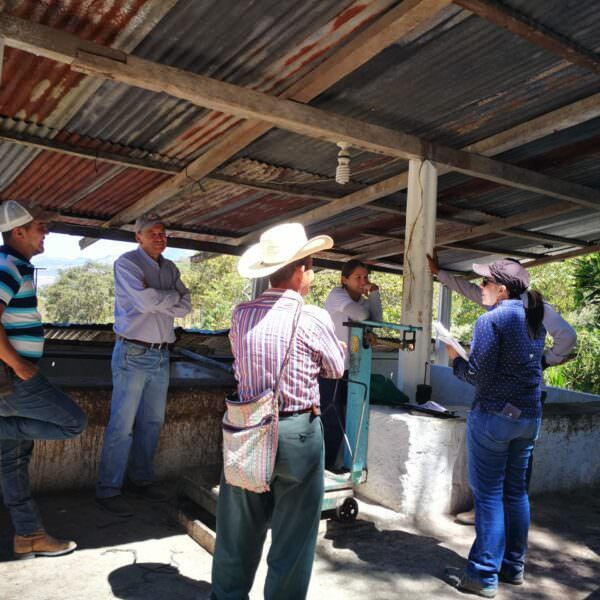
Rainforest Alliance certification is carried out by our authorized certification bodies. Find an authorized certification body in your county.

Olam is a global integrated supply chain manager of agricultural products and food ingredients, sourcing 20 products, with a direct presence in 64 countries. In Ghana it sources 80,000 Mt cocoa per year, of which four percent originates from the western Bia-Juabeso region, representing USD 6 million market value. Olam started its operation in the region […]

In this paper, the authors develop an assessment tool to evaluate climate-smart landscape needs and opportunities in six key activity domains, then apply this tool in the agricultural landscape around Kericho, Kenya, an important tea-growing region where agriculture and ecosystem services are expected to be strongly affected by climate change.

The main aim of this study is to understand the outcomes of UTZ certification in Colombia in relation to the objectives of the program as described in the UTZ Evaluation framework, the Theory of Change and the key UTZ program indicators. It focuses on the performance of UTZ Certified coffee farmers during the harvest seasons […]

In 2007, a farm in Kenya became the first tea producer to achieve Rainforest Alliance certification. Today, more than 659,000 farms—covering just over two million acres (830,000 hectares) in 17 countries—produce Rainforest Alliance Certified tea. And with commitments from Unilever, Taylors of Harrogate, Tata Global Beverages, and other prominent tea companies to source only Rainforest […]

The study highlights the need of improvements, both possible and necessary. The revised UTZ code of conduct approved in June 2014, already addresses some of these areas of improvement. Gender and inclusiveness – Women and youths represent about half of the work force on cocoa farms and yet the report found they were not being […]

This study by COSA evaluated the performance on key sustainability indicators in the 2010 and 2012 cocoa production years for UTZ certified farmers in two districts in Ghana. The 2010 baseline of UTZ Certified farmers was taken before they became certified. The study was commissioned by UTZ Certified and Solidaridad to learn what aspects of […]